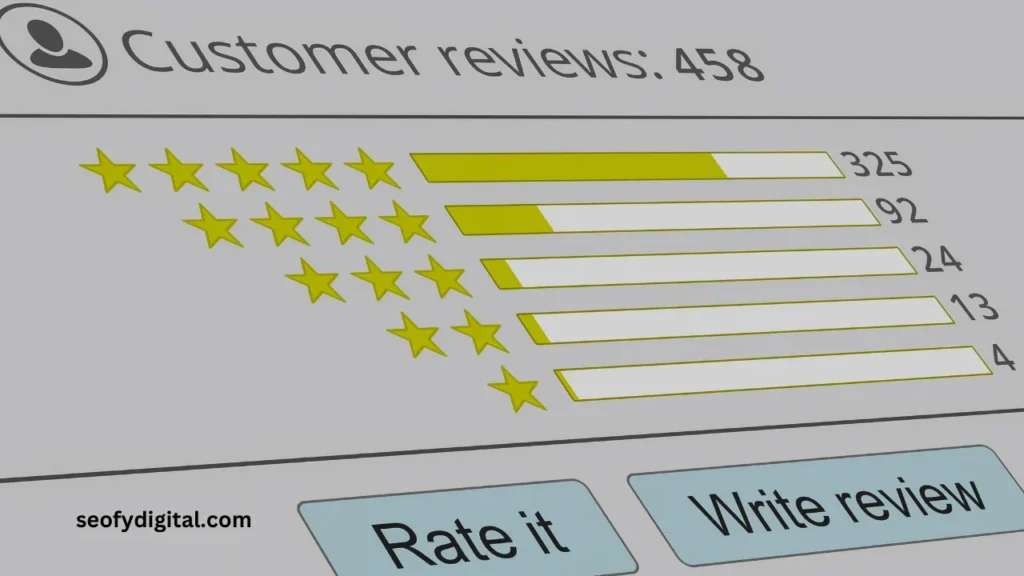In the age of digital interactions, online reviews have become the lifeline of a business’s reputation. When was the last time you made a significant purchase without checking online reviews first? For most people, that number is rare or non-existent.
Studies have shown that up to 90% of consumers read online reviews before choosing where to spend their money, and these reviews often influence their final decision. This powerful trend signifies that what customers say about a business online—and how the business responds to it—carries immense weight.
But here’s the question at hand: Can responding to Google reviews actually help boost SEO? Most business owners already know that collecting positive reviews is crucial, but many overlook the impact of actively responding to those reviews. SEO, or Search Engine Optimization, is the process that affects your visibility in search engine results, and it’s heavily influenced by various factors, one of which might be review engagement.
Responding to reviews could be more than just good customer service—it might be an overlooked SEO booster that can influence where you rank in local searches. In this article, we’re diving into the specifics of how responding to Google reviews impacts your SEO.
We’ll explore the direct and indirect effects, best practices for crafting responses, and even the potential risks involved. So if you’re ready to improve your online presence and show up higher on search results, keep reading to learn why every review response might count in shaping your brand’s visibility.

Contents
- 1 Direct Impact on SEO
- 2 Indirect Impact on SEO
- 3 Best Practices for Responding to Google Reviews
- 4 Potential Drawbacks
- 5 Conclusion
- 6 FAQs
- 6.1 1. Does responding to Google reviews really help SEO?
- 6.2 2. Is there a recommended response time for reviews?
- 6.3 3. Should I respond to both positive and negative reviews?
- 6.4 4. Can responding to reviews help build credibility?
- 6.5 5. Will keywords in review responses affect SEO?
- 6.6 6. Can review responses generate more reviews?
Direct Impact on SEO
Google’s algorithms have grown incredibly sophisticated, and local SEO factors play a significant role in determining where a business shows up in search results. Google looks at review quantity, quality, and recency as ranking signals, meaning that a constant flow of recent, high-quality reviews can boost your visibility.
Responding to reviews adds an extra layer of activity, showing Google that your business is engaged with customers and potentially helping your rank in local searches. By replying to reviews, you also have the chance to incorporate relevant keywords naturally in your responses.
For example, if you run a bakery and a review mentions your “delicious cupcakes,” a response could subtly emphasize these keywords without appearing spammy. This keyword optimization within responses can help improve your search engine visibility, as Google may connect these keywords with your business, making it easier for potential customers to find you.
Another direct impact stems from your Google My Business (GMB) profile. Having a complete and active GMB profile is crucial for SEO. Regularly responding to reviews not only shows that your profile is current and monitored but also signals to Google that your business is actively engaged with its customer base, which can improve local search rankings.
Indirect Impact on SEO
One major indirect effect of responding to reviews is building trust and credibility. When potential customers see that a business actively engages with its reviewers, it establishes a sense of reliability.
Both positive and negative reviews provide opportunities to show professionalism, which can make other customers feel more comfortable choosing your business over competitors. Responding to reviews can also encourage more customers to leave feedback, as it signals that you value their input.
With more reviews, there’s a stronger reputation-building effect, which can further enhance your online visibility. Additionally, increased interaction on reviews could lead to a better chance of generating backlinks from review sites or other third-party websites, which is a valuable asset for SEO.

Best Practices for Responding to Google Reviews
To maximize the impact, it’s essential to follow best practices when responding to reviews. Timely responses are crucial; they show that you prioritize customer feedback and are prompt in acknowledging their experiences.
Personalized responses are equally important. Generic replies may come off as insincere, while a well-thought-out response tailored to each reviewer shows you’re genuinely invested in their experience.
For positive reviews, thank your customers and highlight specific aspects they appreciated about their experience. This reinforces those positive attributes to other readers. On the other hand, handling negative reviews requires a thoughtful approach.
Address the issue professionally and focus on turning the experience around. This can demonstrate to potential customers that you are proactive in resolving concerns and committed to customer satisfaction.
Potential Drawbacks
Responding to every review can be a time-consuming commitment for businesses, especially those with a large number of reviews. However, finding a balance or delegating review responses to a team member can help manage this.
Additionally, there’s always a risk of negative publicity if responses to negative reviews are not handled professionally. A poorly worded response can backfire and harm your online reputation, making it crucial to approach every reply with a level-headed and customer-centric attitude.
Conclusion
Incorporating review responses into your SEO strategy can be a game-changer, enhancing your local rankings, credibility, and customer trust. Each response is an opportunity to build a stronger connection with your audience and potentially improve your visibility.
While it requires time and thoughtful effort, responding to reviews shows you value customer feedback and are committed to enhancing their experience with your brand. If you’re looking to make a significant impact in local SEO, consider responding to reviews as an essential part of your strategy.
With best practices and a focus on genuine engagement, you can turn each review interaction into a positive force for your business’s online presence. So take a proactive step today—start responding to those reviews and watch your business’s reputation and visibility grow.
FAQs
1. Does responding to Google reviews really help SEO?
Yes, responding to reviews shows Google your business is active and engaged, which can improve local search rankings.
2. Is there a recommended response time for reviews?
It’s best to respond within 24-48 hours, as prompt responses show you value customer feedback.
3. Should I respond to both positive and negative reviews?
Absolutely. Positive responses build goodwill, while handling negative reviews professionally shows you care about resolving issues.
4. Can responding to reviews help build credibility?
Yes, actively engaging with reviews builds trust and shows potential customers you’re attentive to their needs.
5. Will keywords in review responses affect SEO?
Including keywords naturally in responses can help Google associate relevant terms with your business.
6. Can review responses generate more reviews?
Yes, customers may be more likely to leave reviews if they see that your business values feedback and responds to it.








